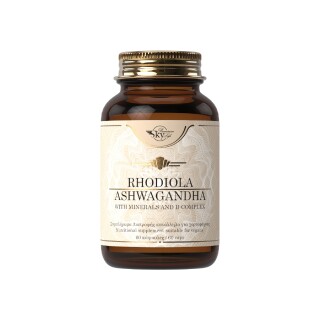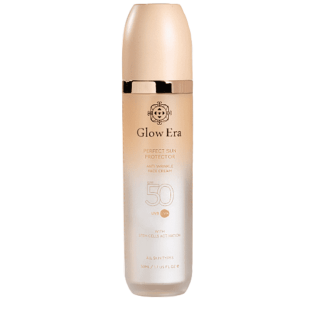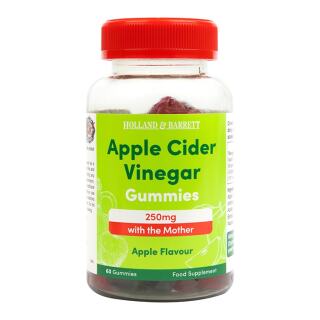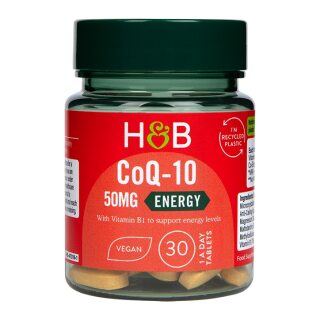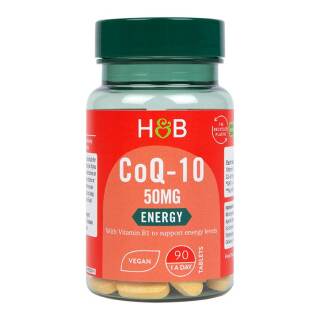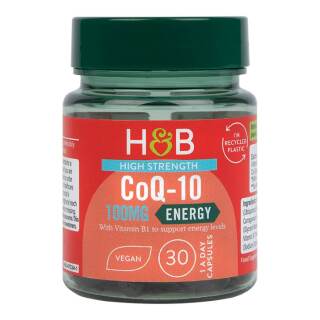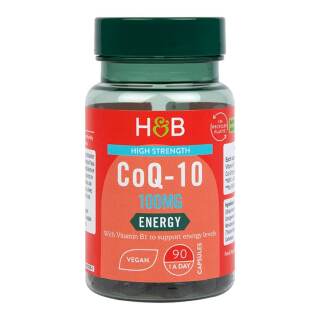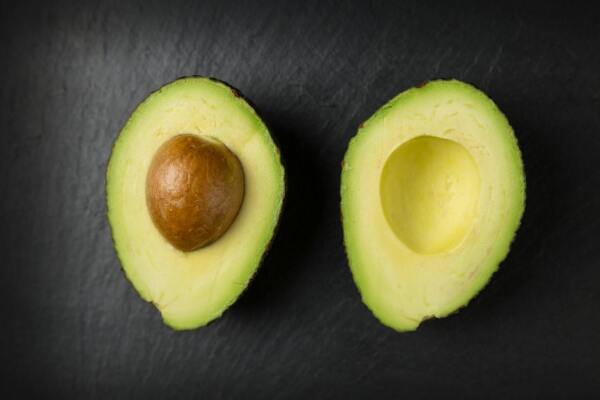What is coenzyme Q10?
Many of you may have heard of it in beauty product advertisements, while others may have associated it with the sports industry. Coenzyme Q10 is a vitamin-like molecule, which is considered very important, for energy production, inside the “energy production factory" within the cell, the mitochondrion. Since it was first isolated by researchers in 1955, it has attracted the interest of scientists as it is a key component for many bodily functions, it did not take long to become widely known, due to its polymorphic nature.
Our body has the ability to produce coenzyme Q10, with small amounts obtained through food or dietary supplements. It exists in 2 main forms, which are being reformulated in the human body, ubiquinone and ubiquinol. Ubiquinone is the oxidized form of Co-Q10 and the most commonly reported, which is converted to ubiquinol so it can better absorbed. Depending on the need, each form is involved in different reactions and equally serves different needs.
Coenzyme Q10 properties, main role and functions.
- Energy production. Coenzyme Q10 is found in all cells of the human body. Its primary role is to participate in energy production, which is why most of it is found inside the organs with the highest energy requirements (the organs that spend large amounts of energy to function properly), such as the heart, brain, liver, kidneys and lungs.
- Antioxidant activity. Coenzyme Q10 is commonly used as a main ingredient in skin care products as an anti-aging agent. It plays a key role in counteracting damage caused by excessive free radical accumulation - the so-called "oxidative stress" - helping to maintain healthy and youthful skin.
- Cardiovascular protection. Co-enzyme Q10 production declines with age and its deficiency has been associated with increased cardiovascular risk. Coenzyme Q10 improves endothelial function, protecting the circulatory system and acting in support of vascular and heart health. Numerous studies have examined coenzyme Q10 supplementation, both in patients with heart failure and in cases of Diabetes Mellitus II, an independent factor in the development of cardiovascular disease. A meta-analysis by De Frutos and colleagues in 2015, noted a reduced number of arrhythmias, following surgery, in patients with heart failure after supplementation with coenzyme Q10. In addition, when taking statins - the medication often prescribed for cholesterol reduction - muscle pain and severe fatigue can be observed. This is probably due to the intense reduction in coenzyme Q10, which is why it is not uncommon for coenzyme Q10 to be recommended as a supplement to be taken alongside statins.
- It acts against osteoporosis. Recent scientific data note that certain medications used in osteoporosis may also help to reduce the production of Co-Q10.
- It helps reduce inflammation. Inflammation and oxidative stress are the main "common" pathways for the appearance of most of the non-communicable diseases. Coenzyme Q10 supplementation appears to help reduce inflammatory factors, and thus act protectively against the onset of many kidney and liver pathologies, and has noted benefits in improved outcomes of neurodegenerative diseases such as Alzheimer's & Parkinson's.
Is coenzyme Q10 supplementation considered as safe?
International journal of molecular sciences, 21(21), 7870.


